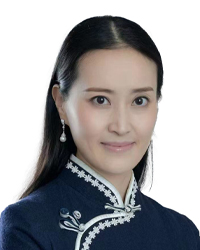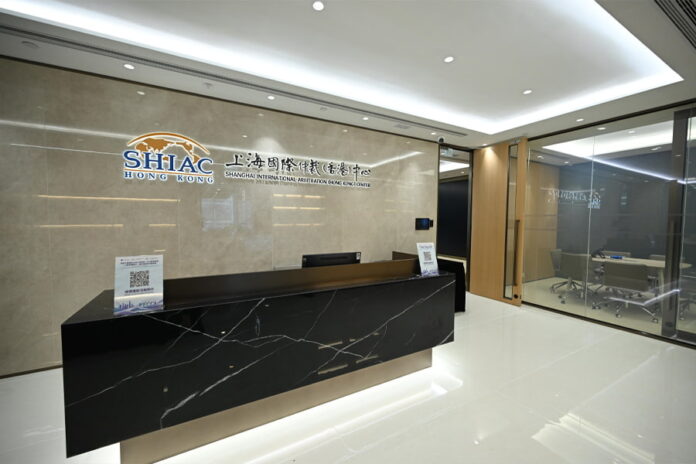The 36-year-old Shanghai International Arbitration Centre (SHIAC) officially inaugurated its first offshore branch in Hong Kong on 5 May, marking the beginning of Shanghai’s arbitration industry venturing into the global arena.
Wang Weijun, secretary general of the SHIAC, told China Business Law Journal her aspirations to integrate into Hong Kong and the international arbitration community through the new centre, and share mainland experience and promote the globalisation of mainland arbitration institutions.

The new branch, known as the Shanghai International Arbitration (Hong Kong) Centre, is located at 8 Queen’s Road Central, near the Department of Justice in Hong Kong.
Wang underscored the autonomy of the Hong Kong Centre and emphasised this branch should not be seen as a mere office but “an independent arbitration institution established under Hong Kong law”.
Hong Kong is the only common law jurisdiction in China and has long been recognised as the “super-connector”. Wang believed the establishment of the Hong Kong Centre would facilitate SHIAC’s internationalisation by leveraging the local judicial system, which, coupled with the SAR’s welcoming attitude towards arbitration institutions from around the world, makes it a natural choice for the SHIAC to expand its international presence.
“We will have the opportunity to accept or face more international and overseas cases between market players here,” said Wang. “For SHIAC, as a leading arbitration organisation in the mainland, Hong Kong is a ‘place of people and peace’ to further enhance the competence of its dispute resolution services.”
The plan to establish the Hong Kong Centre originated from the 20th anniversary of the Shanghai-Hong Kong co-operation mechanism. It was a continuing arbitration collaboration aligning with the bilateral mechanism, which has initiated an ongoing partnership between the SHIAC and the HKIAC since 2018.
A week before the Hong Kong Centre’s opening, Hong Kong Chief Executive John Lee, described the inauguration as a milestone in the innovative co-operation between Hong Kong and Shanghai. He said it would inject new energy into Hong Kong’s development as an international legal and dispute resolution service centre for the Asia-Pacific region.
Wang also expected the development of the Hong Kong Centre not solely relying on the advantages of the city, but by becoming an “insider” within the Hong Kong and international arbitration community.
“The Hong Kong Centre has already implemented an arbitration fee-charging mechanism that aligns with the practices of Hong Kong’s arbitration legal services industry, and we are actively exploring the study of independent arbitration rules that incorporate Hong Kong’s legal characteristics.
“We are also carrying out the necessary preparations to be included in the list of Hong Kong arbitration institutions under the PRC-HK Arrangement on Interim Measures,” she added.
According to the official document, the costs incurred in arbitration proceedings administered by the Hong Kong Centre include institutional fees, arbitral tribunal fees, emergency arbitrator fees and other costs. The institutional fee varies based on the amount in dispute, while the remuneration for arbitrators in the arbitral tribunal fee can be calculated either based on the amount in dispute or an hourly rate.
While Hong Kong’s international arbitration legal services industry is renowned for its professionalism, Wang said there was still room to further address the arbitration legal service needs of mainland enterprises in Hong Kong.
“That’s why we want to pour out some of our experience in serving mainland market players and be a good ‘ferryman’ for arbitration legal interoperability between Hong Kong and the mainland,” said Wang.
She expected arbitration co-operation between Shanghai and Hong Kong to ultimately enhance China’s reputation for arbitration strength worldwide.
SHIAC’s report shows that in 2023, the institution handled the highest number of cases and the total amount of disputes in six years, with 4,879 cases involving RMB70.8 billion (USD9.76 billion).
Apart from mainland China, 165 commercial entities from other countries or regions were involved in cases last year, with Hong Kong being the most prominent with 74 parties, followed by the US and Singapore both with 12 parties.
Prior to the SHIAC, three mainland arbitration institutions, the China International Economic and Trade Arbitration Commission, the China Maritime Arbitration Commission and the Shenzhen Court of International Arbitration, had established offices in Hong Kong.























